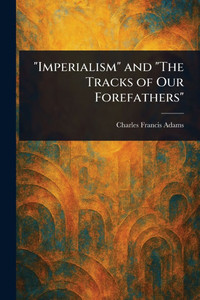
"Long Ago God Spoke to Our Forefathers by Means Of," poetry
Independently published
ISBN13:
9798312586060
$11.60
First Edition: LukivPress (Victoria, BC), 2022. Introduction Hebrew Christians suffered considerable persecution from Jews who had rejected Jesus as the Messiah and a sacrifice for mankind's sins. Paul, in Hebrews, drew attention to this contradiction (9:13-26): If the blood of goats and of bulls and the ashes of a heifer sprinkled on those who have been defiled sanctifies for the cleansing of the flesh, how much more will the blood of the Christ, who through an everlasting spirit offered himself without blemish to God, cleanse our consciences from dead works so that we may render sacred service to the living God?...When Moses had spoken every commandment of the Law to all the people, he took the blood of the young bulls and of the goats, with water, scarlet wool, and hyssop, and sprinkled the book and all the people, saying: "This is the blood of the covenant that God has commanded you to keep." He likewise sprinkled the tent and all the vessels of the holy service with the blood. Yes, according to the Law nearly all things are cleansed with blood, and unless blood is poured out no forgiveness takes place. Therefore, it was necessary for the typical representations of the things in the heavens to be cleansed by these means, but the heavenly things require far better sacrifices. For Christ [the Messiah] did not enter into a holy place made with hands, which is a copy of the reality, but into heaven itself, so that he now appears before God on our behalf. This was not done to offer himself often, as when the high priest enters into the holy place from year to year with blood that is not his own. Otherwise, he would have to suffer often from the founding of the world. But now he has manifested himself once for all time at the conclusion of the systems of things to do away with sin through the sacrifice of himself. Paul revealed the superiority of faith in the ransom value of Christ's sacrifice over works of the Mosaic Law. He highlighted the glory, really, of Christ's founding of Christianity, which included his priesthood [as a "Melchizedek" king-priest, actually]. Did such understanding encourage Hebrew Christians persecuted (essentially) by brethren? Did that understanding urge these men and women to "press on to maturity" (Heb. 6:1)? Jehovah had encouraged and inspired Paul to write Hebrews. Therefore, would the answer to those two questions not be yes? The author Dan Lukiv, published in 19 countries, is a poet, novelist, columnist, short story and article writer, and independent education researcher (hermeneutic phenomenology). As a creative writer, he apprenticed with Canada's Professor Robert Harlow (recipient of the George Woodcock Achievement award for an outstanding literary career), the USA's Paul Bagdon (Spur Award finalist for Best Original Paperback), and England's D. M. Thomas (recipient of the Cheltenham Prize for Literature, Orwell Prize [biography], Los Angeles Fiction Prize, and Cholmondeley award for poetry). He attended The University of British Columbia (creative writing department), the acclaimed Humber School for Writers (poetry writing program), and Writer's Digest University (novel writing program).
- | Author: Dan Lukiv
- | Publisher: Independently Published
- | Publication Date: Mar 01, 2025
- | Number of Pages: 00030 pages
- | Binding: Paperback or Softback
- | ISBN-10: NA
- | ISBN-13: 9798312586060
- Author:
- Dan Lukiv
- Publisher:
- Independently Published
- Publication Date:
- Mar 01, 2025
- Number of pages:
- 00030 pages
- Binding:
- Paperback or Softback
- ISBN-10:
- NA
- ISBN-13:
- 9798312586060



